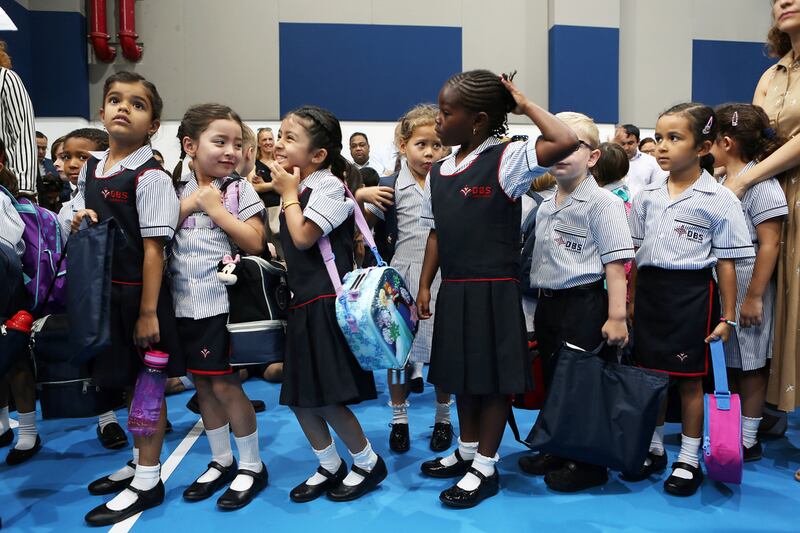My four-year old daughter started her first full year at school in September. Two weeks into the first term, invitations started flowing in for her classmates’ birthday parties. The first party was for a lovely girl whose parents have recently moved to Dubai from the US. She has an American mother and a Danish father, so the event was truly a multicultural affair.
Two weeks later, we attended another party. This time it was for a handsome boy with an Egyptian-Canadian mother and an Iranian-Canadian father.
The happy birthday song was sung in three different languages, despite the eagerness of the young ones to get to the cake.
Multicultural relationships, marriages and families carry the potential of intriguing difference and a wonderful array of creativity and diversity.
When I first met my husband more than 10 years ago, I was mostly captivated by a world he had that was so different from mine.
He had just moved to Dubai from London where he was born and raised by an English mother and a Palestinian father.
Despite our common Palestinian heritage, there was a world of difference between our experiences and identities. As a 22-year-old, I basked in the excitement of learning about rugby. He was equally fascinated by my family's elaborate Friday lunches.
But multicultural relationships also have a far less exciting side. When the infatuation phase passes and the relationship becomes more complex with the introduction of children, diversity’s dimmer side looms: which family holidays should take precedence? How many countries and heritages should our children own up to when they are asked where they’re from? What language do we teach our children to recite their prayers in? And how many versions of the happy birthday song do we really need to sing at their birthday parties?
These questions are more than mere reflections of the act itself or the situation at hand. They are manifestations of our emotional attachments and existential needs.
We believe that we carry on living after our death partly through the legacy of what we create in our children.
In them we seek to lend a continuation to our history, culture and heritage. We also seek to create commonalities so we can grow old around familiar sights and sounds – ones that evoke the safety we once experienced growing up.
This polarity of seeking the different while longing for recreating the familiar requires a careful balancing act to maintain stability. If you pull more towards one side or the other, someone will for sure lose out.
A Bosnian-Swiss friend of mine shared with me her polarity story. As she watched over her eldest son playing with other children in the park, the golden question came up: one of the other children asked her son where he is from.
Her little boy answered that he is Swiss. My friend was astonished by her son’s response. She had emphasised her Bosnian heritage with her children at home, while her Syrian husband emphasised his Syrian heritage. She had expected her son to lean towards one of the two. But Switzerland, once more, was neutral territory, a place in which the boy opted to exist in safety.
Multicultural families are a more prevalent phenomenon in the modern world. At their core, they might hold the key to a brighter future for our kind. They would do so if within them we are able to raise generations of individuals who can truly understand, navigate and embrace the different.
As our world sinks into turmoil rooted in the fear of difference, perhaps more harmony will come from the cultivation of diversity and recognising differences.
So how do we create families that can successfully navigate and embrace diversity? It really starts with adults and parents.
To answer that question, we would have to examine how healthy our attachments to the known and the familiar are.
Can all these attachments stand the test of logic and reason? Are they truly a definition of who we are? Can we not exist in other versions and still be ourselves?
Discussing these questions with big doses of honesty, openness and compromise can, perhaps, get us closer to achieving the right balance.
Rana Askoul is a writer in Dubai focusing on women and Middle East issues
On Twitter: @Ranaaskoul





